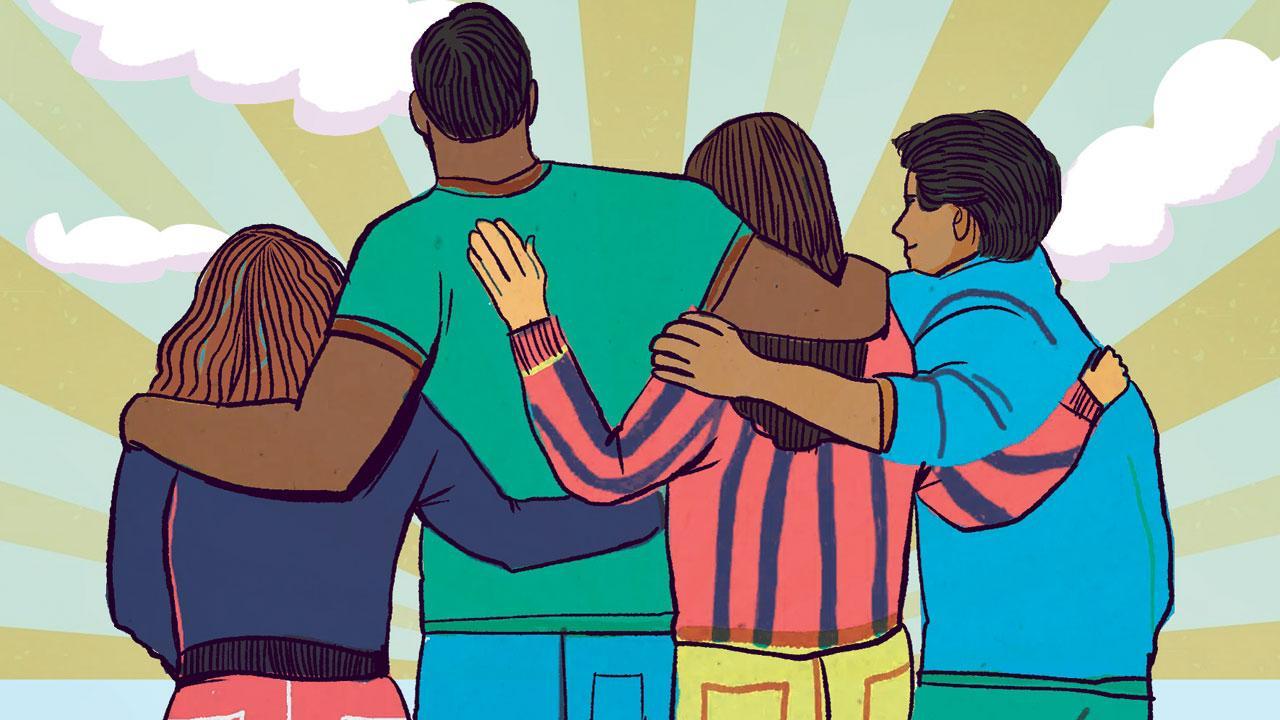But for some of my friends, it has been a time when the stoicism of their previous years has flowered into thrilling achievement

Illustration/Uday Mohite
![]() Here we are in the last day of the year. Traditionally, a time to take stock, celebrate our achievements, assess how we came through our challenges and look ahead.
Here we are in the last day of the year. Traditionally, a time to take stock, celebrate our achievements, assess how we came through our challenges and look ahead.
This year, I’ve found that hard. In part it’s because it often feels like we are in the end times. The horror of Palestine, with over 25,000 dead, many disabled and living on the edge of humanness while Western media glides over these oppressions with what feels like deliberate brutality. The cynicism of Parliament with the Opposition suspended, passing major bills. In part, it’s because personally, it has been a challenging year for me, in which I’ve learned to cultivate a certain stoicism, keeping my head down and working doggedly, appreciating myself with some quietness when I do something well.
But for some of my friends, it has been a time when the stoicism of their previous years has flowered into thrilling achievement. Two of my friends published books after years of labour and engagement: my scholar friend Anjali Arondekar’s book Abundance: Sexuality’s History and my poet friend Abhishek Annica’s memoir of a life with disability, The Grammar of My Body. Their offers of the ideas of inter-dependence, the abundance in being, are shot through with an experiential and beautiful politics—and what is politics without the hope of beauty?—impressed me, energised my imagination, made me want to work some more. My friend Hansa Thapliyal—who I have watched for years teach herself animation, embroidery, the making of dolls—made an exquisite short film called Kya Hai Yeh Samjhauta, drawing on all of those hard-honed skills and the wisdom of listening to others deeply.
My filmmaker and writer friend Samina Mishra brought years of work with children together in a moving and beautiful Hum Hindustani, where children from diverse backgrounds wrote poems and made art about what they feel makes them Indian. My friend Swati broke both her ankles, and went through multiple surgeries, setbacks and physiotherapy (tough for a person who adores her own slothfulness most) and some despondency, with her good nature and big laugh intact. My mother, Shikha Vohra, moved cities at the age of 76 and set up a new home with all its attendant effortfulness, and has started making new friends, with a cheer Gen Z folks could learn from, after they’ve finished sniffling through the (quite sweet and kind-hearted) Kho Gaye Hum Kahan.
Many other friends continue to struggle with their particular challenges. The hills are alive with the sound of our huffing and puffing. We wave at each other, getting past the half-way mark, sometimes stop to weep on each other’s shoulders and hand over a couple of brownies, and brownie points to keep us going. Friendship is sold as many kinds of an ideal nowadays, but perhaps its thickness lies in witnessing each other so.
It’s not just that other people’s achievements are wonderful to celebrate—we all know we sometimes rejoice and sometimes fall pettily short. It’s just that watching them, knowing how they’ve had to strive, reminds me that struggles take time.
So, you need to take that time to struggle. Some years we must be a work in progress. And it’s a nice thought that when you get to the top of the hill, someone’s waiting on a not-so-lonely top, to clink glasses with you. If not next year, then uske agle saal.
Paromita Vohra is an award-winning Mumbai-based filmmaker, writer and curator working with fiction and non-fiction. Reach her at paromita.vohra@mid-day.com
 Subscribe today by clicking the link and stay updated with the latest news!" Click here!
Subscribe today by clicking the link and stay updated with the latest news!" Click here!








